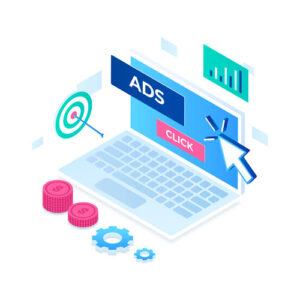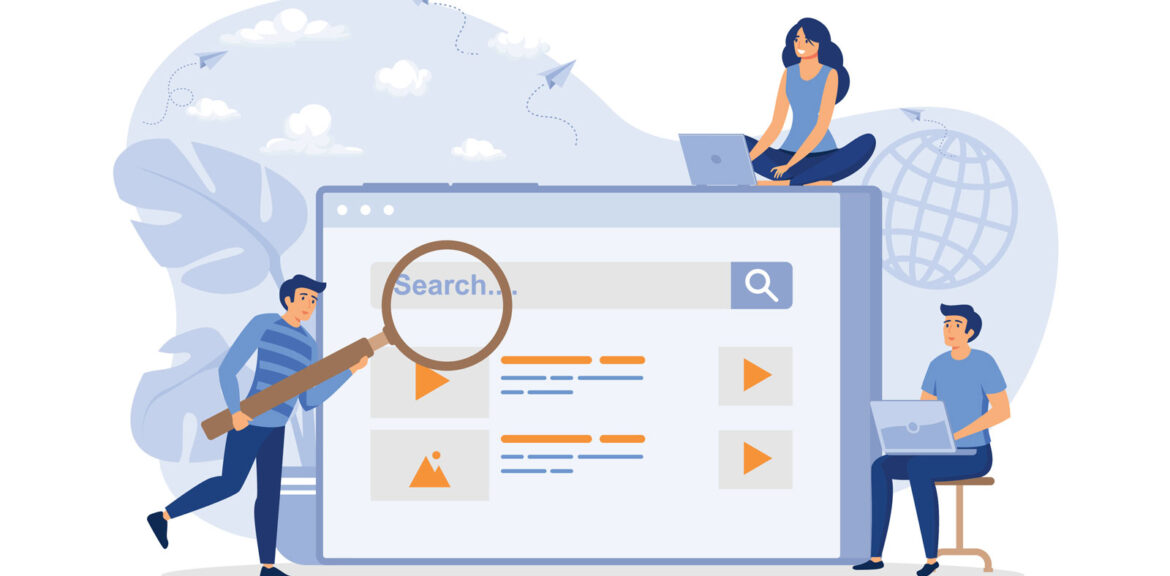After years of dominance, Google is losing its grip on the search market. Apps, online tools, and even other search engines are slowly starting to erode Google’s market share, but what does this mean for organic and paid searches?
Does this mean that traditional SEO (Search Engine Optimization) or traditional paid search systems are now useless? Oddly enough, even though the way people search is changing, the methods by which a website attracts new users is not.
Here is a rundown of organic vs paid search that includes the differences between the two.
Why Does Organic vs Paid Search Still Matter?
 If Google is losing its foothold, when why is there still an organic vs paid search argument?
If Google is losing its foothold, when why is there still an organic vs paid search argument?
The reason is that Google’s influence has standardized SEO and paid searches. Webmasters wanted to be on Google, so they conformed to Google’s standards. Instead of other companies/search-engines/tools/apps creating their own set of rules, they simply abided by what Google had standardized.
Does this mean that if I optimize my website for Google, it will also be optimized for other search engines, tools, apps, online networks, and so forth? To put it simply, yes it does.
Organic Searches and Organic Advertising
You add content to your website and create content that can be read by search engines and online tools, and they pick up on it by themselves. This is the short-hand version of what organic searches and organic advertising are.
It is a case of you creating content that draws people in and content that is useful. This results in more and more online entities taking note of your website. It happens organically in numerous ways, not just through search engine crawling.
For example, somebody may find one of your images through a phone app. They may decide to share it on social media with a link to your website or share it on their own website with a link to your website. That snippet of attention may draw other online tools, apps, and search engines to your website, which then increases the exposure of your site.
Paid Searches and Advertising
 Organic traffic takes a long time and requires a certain amount of luck if you want a fair stream of people visiting your website. A paid search will draw people towards your website very quickly, but only so long as you are willing to pay.
Organic traffic takes a long time and requires a certain amount of luck if you want a fair stream of people visiting your website. A paid search will draw people towards your website very quickly, but only so long as you are willing to pay.
The paid results are often at the top of a tool/search-engine or down the side of the screen/GUI. In many cases, they have the word “Ad” next to them or some other indicator that they are paid placements such as being a different color to the other results on the page.
If you have set your paid searches up correctly, then your paid-search advert should appear whenever somebody from your target audience runs a search. For example, if you sell shoes, and somebody is looking for new shoes, then your company should appear at the top of the search result if you have paid enough money.
Is It a Case of SEO vs AdWords?
Google AdWords is now called Google Adverts or Google Ads. Google uses both organic keywords and your tagged keywords to decide how it should rank your website. It also uses big data collected from search engine use, YouTube, Google Ads, and Chrome users.
Google Ads will contribute a little to your organic SEO because it draws attention to your website. This helps your website climb the search engine results. However, the primary focus for advertisers is to draw targeted traffic to a website.
Both organic SEO and Google ads can draw people to your website, but the method and goal of each is different. Google Ads is more targeted.
It enables you to draw in a specific number of people so that you may test your website. For example, if those targeted people do not make a purchase, then you know that it is your on-page marketing that is failing rather than your off-page marketing or search engine ranking.
Is It a Case of One or the Other?
 A good online strategy should be to have both. On the one hand, you optimize your content so that it ranks up the different search engines, online tools, and so forth. On the other hand, you draw the right people to your website with paid searches.
A good online strategy should be to have both. On the one hand, you optimize your content so that it ranks up the different search engines, online tools, and so forth. On the other hand, you draw the right people to your website with paid searches.
Sometimes, paid searches are required simply because there is no other way your target audience will ever see your content. Once your target audience is visiting on a regular basis, then both your organic SEO and your own on-page marketing will start to shoulder the burden.
Even if your website is receiving plenty of traffic from apps, search engines, etc., it is still a good idea to use paid search advertising because it keeps the fires burning.
A drop-off in visitors may result in a negative feedback chain where fewer people visit because fewer people are visiting. There are many websites that are propped up by paid advertising. For example, Amazon has a massive online presence, but you still see ads for the website because some of its success is down to paid advertising.
Organic Searches Will Always Have The Edge
Paid advertising will always be the most powerful tool at your disposal “IF” you are willing to constantly pay for it and maintain it. Optimize your content for searches, and over time your content will sell itself.
Obviously, one cannot discount the power of paid searches and the effect they have. That is why the biggest brands and blue-chip companies are able to dominate search engines like Google. Nevertheless, it is in your interest to search optimize your content so that search engines, online tools, apps, and search software can find your website and drive traffic to it.
Once your website starts ranking, and once it has enough content and enough history, it will perpetuate itself to the point where it would take years of willful neglect in order to lower its search engine/online presence.
A Ready Mix of Both Is Required
 It is never a case of organic vs paid search; both are required for genuine online success. As a small-to-medium business, you cannot afford to spend money simply to grow the brand or improve your online presence. You need to utilize paid searches with the aim of converting your traffic. Meanwhile, you need to create a solid foundation for your search engine optimization.
It is never a case of organic vs paid search; both are required for genuine online success. As a small-to-medium business, you cannot afford to spend money simply to grow the brand or improve your online presence. You need to utilize paid searches with the aim of converting your traffic. Meanwhile, you need to create a solid foundation for your search engine optimization.
Turning an advert clicker into a buyer is no easy task, but if you can convert people on at least a semi-consistent basis, then part of your paid search marketing will be propped up by the sales you make. At the very least, this will enable you to improve your online reach, which helps spread brand awareness while improving the popularity (and ergo the search engine ranking) of your website.
Are you tired of searching online for do-nothing solutions and motivational-sounding nonsense? If that is the case, then do yourself a favor and get some genuine expert advice and time-tested SEO solutions from our blog.
